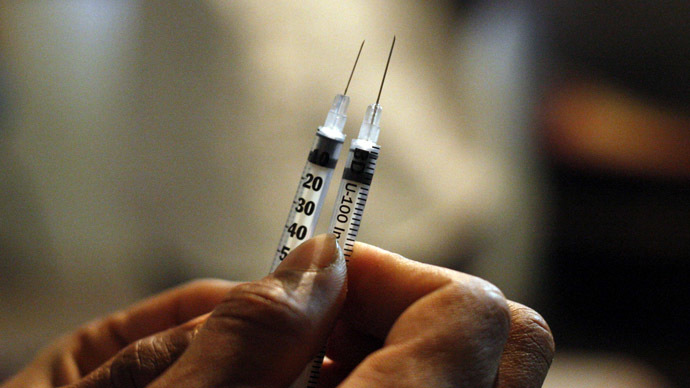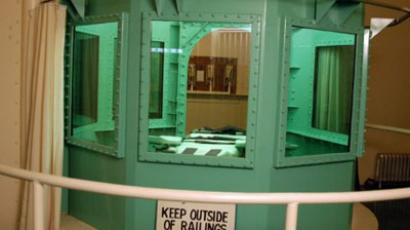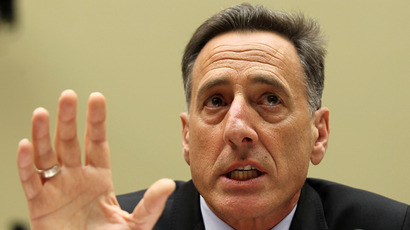Lethal drug shortage has states scrambling for new execution methods

Ohio state officials have announced they are running out of the drug used in lethal injections, a problem that is becoming increasingly common throughout the US, and potentially forcing authorities to consider new methods of executing prisoners.
A recent court filing indicated that Ohio’s supply of the sedative pentobarbital will be gone by the end of September. The filing does not specify what drug Ohio plans to use to replace pentobarbital with but a change is expected by October 4, according to the Associated Press.
It is unlikely state authorities will resort to a more brutal form of execution after eliminating use of the electric chair in 2001.
Experts attribute the cause of the shortage to Europe’s unwillingness to ship the drug to the US, knowing it will be employed for capital punishment. Pentobarbital manufacturers have also expressed a moral hesitancy to produce the sedative for the 16 states with active death chambers, two-thirds of which began searching for a new drug two years ago.
Britain banned the export of pentobarbital, pancuronium bromide and potassium chloride in 2011, citing a parliamentary inquiry that found British wholesalers were the source of drugs used in 100 executions.
“We oppose the death penalty in all circumstances and are clear that British drugs should not be used to carry out lethal injections,” Vince Cable told The Guardian. “Because of the importance and urgency of the situation this is an issue on which we felt we had to take the lead.”
One option under consideration is combining small batches of pentobarbital – which is often used to euthanize animals- after acquiring it from pharmacies, which are permitted to compound the drug and administer it to individual patients.
Texas first started using pentobarbital last year after one of the drugs it used in its three-dose execution process, sodium thiopental, expired and became difficult to obtain. The manufacturer, an Illinois-based pharmaceutical company called Hospira Inc., had planned to move its drug production to Italy. The Italian government objected, stating that it does not approve of the production of thiopental because of its use in executions. Hospira Inc. proceeded to cut off its supply.
Texas was forced to switch to pentobarbital – also known as Nembutal – which raised the cost of lethal injection drugs for each execution from $83.55 to $1,286.86.
The single-dose lethal injection drug is also used by patients seeking doctor-assisted suicide in Europe.
Richard Dieter, the executive director of the Death Penalty Information Center in Washington DC, told The Guardian that the so-called compound drugs from pharmacies may pose its own set of problems.
“They have their own ethics,” he said. “I’m not sure that will be a fruitful way to go.”
The Missouri Supreme Court was met with a backlash this week after ruling that prison officials may use the anesthetic propofol, a drug unproven in such circumstances, when carrying out the death penalty.
Propofol is generally injected by a medical professional because, if administered incorrectly, the drug could lead to serious and painful muscle contractions. Missouri state law, however, no longer requires a physician to be on hand for an execution. The drug first made headlines when international pop star Michael Jackson died from an overdose in 2009.
“This is an experiment with a human subject,” Dieter told the Associated Press. “This will be sort of a brute force approach where you give them enough and they die.”
Dieter went on to say that general confusion around which drug to use has led to some states abolishing the death penalty, while others have reduced the number of people they kill. Executions in the US peaked in 1999 with 98, he said, with 43 in 2011 and 2012, and 23 so far in 2013.
Jeff Stack, a legislative consultant with Missourians for Alternatives to the Death Penalty, told the AP Missouri’s propofol experiment “is a shocking wakeup call to remind people in our state that we are part of this barbaric tradition.
“Whether we do it by lethal injection or behead them or use poison gas, it’s all murder,” he said.














